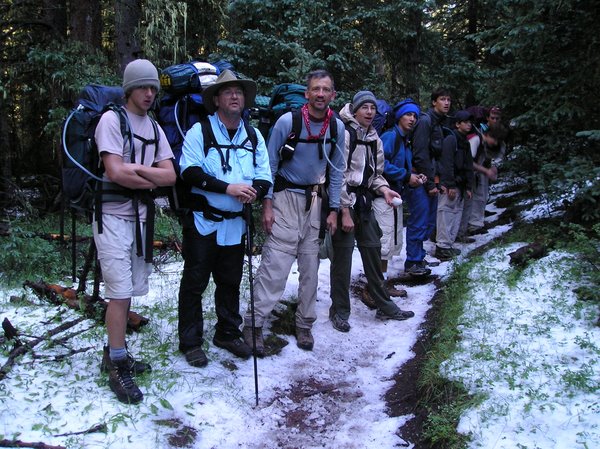.
The young brain is very plastic and is weaving an emerging structure by almost purely genetic rules. These imprinted (rigid) structures are necessary for any kind of development. You must connect the urge to piss and shit to the going to the toilet behavior. You must get the spoon to your mouth to stop the feeling of hunger.
The very earliest memories 'go along for the ride' while the holistic mind emerges from the brain. My first two clear memories are these:
1. I was standing on the back porch looking up the driveway toward the street when my baby brother came home with my mother from the hospital in a red and black Dodge that was not our car. (2.5 years old)
2. I was holding my father's hand while we walked across the parking lot of El Matamoros towards our blue Chevrolet (20 months).
I recall these two memories because I repeatedly replayed these two memories when I was in first, second and third grade. I was fascinated by the rich and detailed quality of these two events among the countless others I could not remember. But the catch is that now these memories are not at all like what happened at the time. I filled in much later the detail of the gravel driveway and the detail of the car model as well as the layout of El Matamoros which had a fascinating neon sign out front and where we went many times afterward. Now, I picture I-35 running in front of the restaurant when, in fact, it was on East Avenue which did not become I-35 until I was older. Remembering something changes the memory. I remember this fact when, several months ago, I was at the light at 11th street heading south on the i-35 access road when I was suddenly transported back in time where the frontage road was East avenue as it appeared in my earliest dreams -- at this time dreams and very early memories seem the same to me.
For you, painful experiences were blocked in memory. You chose to forget the details as a defense. You 'unwired' a synapse by surrounding it with memories of a more pleasant sort. In my case, when Mama got out the belt and gave me a lesson, I went off and thought about a family that had a sane mother and father. There were games my brother and sister and I played where we elaborated this other family's life and invented new kinds of behavior. This, IMHO, is the basis for play. In the company of other children we make an inhibiting memory in place of a painful memory. Returning to the same imaginary family and their imaginary rules of behavior supplants the painful 'real memory' which eventually fades from our conscious access.
As I use CBT to rewire around old rules of habit, I get flashes of these painful experiences that these jury-rigged (false) memories hid. I created scenarios that used immature hacks (poor rules) to condition myself through play acting. We are all wired just a little bit off. We can use CBT as a 'disinhibiting influence'. Talk out loud about what you do remember and catch yourself 'changing the subject' which is usually a halting interruption and a change in the flow of the story. At the exact moment you change the subject in your stream of consciousness, write down exactly the feeling you have when you change the subject. Then examine the 'cognitive set' that goes with that 'emotional set'. These events are markers for 'threats to your domain' that you conditioned yourself to avoid in speech production. You inhibit yourself from even talking about it. If you have a therapist or a good sponsor you can practice this.
Step 4-5 is the beginning and we cannot do 4-5 too often or in too much depth. This is NOT for the purpose of finding more people to apologize to in step 8-9! I have just realized that CBT is exactly what 6-7 are. Bill W's early 20th century psychology was not improved to include CBT until the 1970's whenBeck
and Ellis
first published peer-reviewed papers on CBT.
At this point I use 4-5 to debug intense resentment and remorse for the 10th step tough situations and I usually just change my behavior with work colleagues using another resource I discovered
.
That's just my opinion, I await falsification.
-kirk


No comments:
Post a Comment